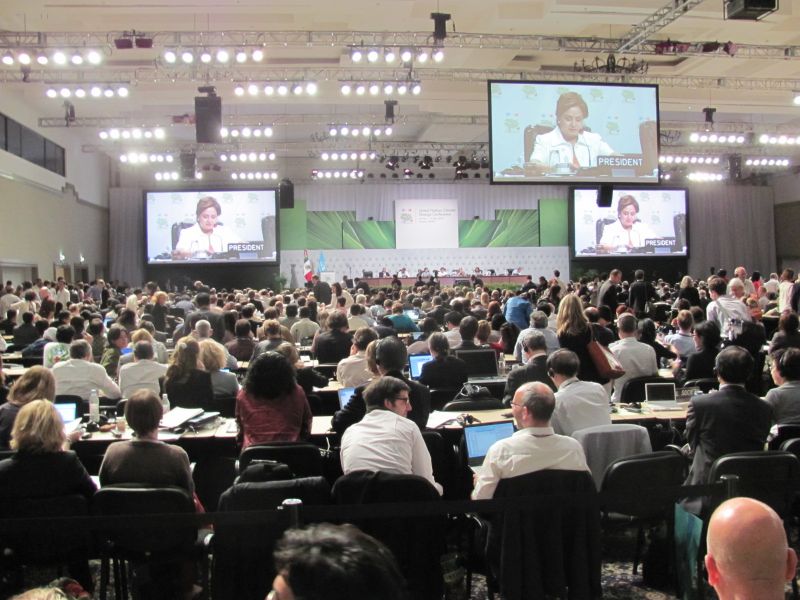Experts worry that the world is facing a looming food crisis, one that we are currently not well prepared to deal with.
In his new book, World on the Edge: How to Prevent Environmental and Economic Collapse, Earth Policy Institute’s Lester Brown looks at the state of the world’s resources, warning that the outlook does not look good when it comes to feeding the world’s population. Brown warns that the “food bubble” may be about to burst in both the book and a new piece in Foreign Policy this week, laying out why there is good reason to believe that the new year may be disasterous on this front:
But whereas in years past, it’s been weather that has caused a spike in commodities prices, now it’s trends on both sides of the food supply/demand equation that are driving up prices. On the demand side, the culprits are population growth, rising affluence, and the use of grain to fuel cars. On the supply side: soil erosion, aquifer depletion, the loss of cropland to nonfarm uses, the diversion of irrigation water to cities, the plateauing of crop yields in agriculturally advanced countries, and—due to climate change —crop-withering heat waves and melting mountain glaciers and ice sheets. These climate-related trends seem destined to take a far greater toll in the future.
Already, there are reasons to be concerned: food riots in Algeria, soaring wheat prices in the United Kingdom, an 18 percent inflation rate on food prices in India, and the Mexican government trying desperately to fend off rising corn prices in order to prevent a recurrence of the so-called “tortilla riots” of 2007, among others.
Last week, the United Nations Food and Agricultural Organization reported that food prices hit an all-time high in December—higher than even the spike between 2007 and 2008, a rise that caused a global food crisis. There are many reasons for the spike, and unfortunately, two of the major ones aren’t getting better any time soon. The first is population: We gain 219,000 fellow humans every day. Sometime in late 2011, we will number 7 billion as a global population. (See our population special for more.) The rate of population growth has slowed, but we’re pretty much guaranteed to keep expanding.
The second reason is equally intractable: Many of the current environmental factors driving constraints on food resources, including heat waves, drought, and severe weather, are only going to get worse as the climate changes. This is on top of the water resource depletion and soil erosion that were already underway. And unlike previous rises in food prices, there is probably no turning back from this one. “We can no longer expect that things will soon return to normal, because in a world with a rapidly changing climate system there is no norm to return to,” writes Brown. (See Tom Philpott and Geoffrey Lean for more on the subject.)
The rising food prices serve as a powerful reminder that we humans are inextricably linked to our environment, and when it suffers, we suffer. It’s also a reminder that development and environment issues cannot and should not be treated as separate. As Gawain Kripke, policy director for Oxfam America noted last week, unless we address both the underlying issues of both climate and development, “we will find ourselves perpetually on the knife’s edge of disaster.”






